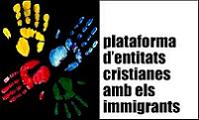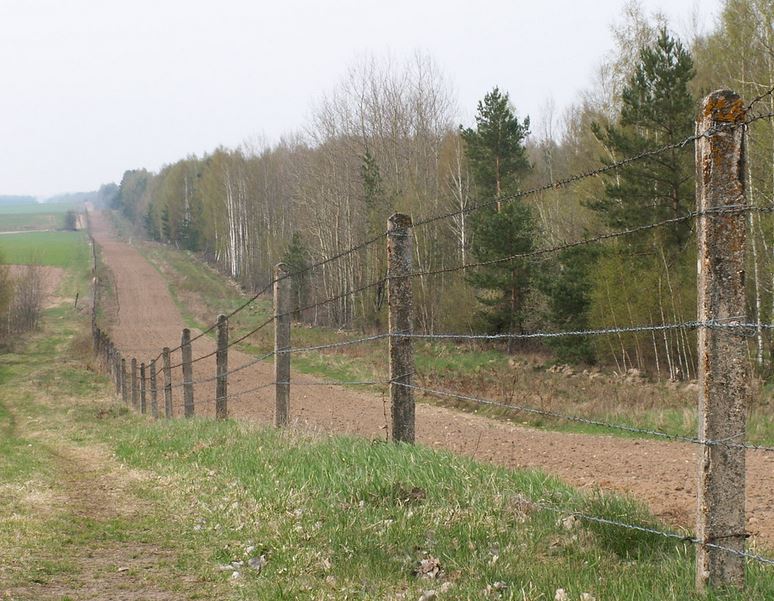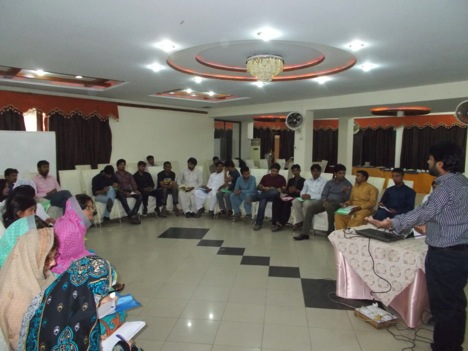 In view of the call for elections to the European Parliament and town councils on 26 May, the Platform of Christian Entities with immigrants calls for citizen participation, given the magnitude of the social challenges facing Europe in the coming years, as well as the key role of our municipalities for social cohesion. With this intention, from our commitment as citizens and as Christians with democratic values, we want to publicly share the following considerations:
In view of the call for elections to the European Parliament and town councils on 26 May, the Platform of Christian Entities with immigrants calls for citizen participation, given the magnitude of the social challenges facing Europe in the coming years, as well as the key role of our municipalities for social cohesion. With this intention, from our commitment as citizens and as Christians with democratic values, we want to publicly share the following considerations:
1- We are once again experiencing an important moment of entry for migrants, both in Europe as a whole and in our country. This is due to the circumstances of insecurity, violence, poverty or inequality suffered by many neighbouring regions and the whole world, as well as to the opportunities offered by our society. As long as these circumstances do not change, and will not do so in the short or medium term, many people will continue to arrive in search of a better future. We must be aware and accept reality as it is.
Europe: the need for a paradigm shift
2- We are deeply concerned that this phenomenon in Europe in recent years has led to the spread of the narrative of immigration as a threat to well-being or identity. Attitudes of fear, suspicion or hostility towards immigration have grown, as have the political forces that feed and use these attitudes. These are political forces that have more and more influence and will foreseeably have it in the new European Parliament. According to surveys, migration is already the first concern of Europeans. As a result, in recent years, government policies have been reinforced which prioritise the closure and externalisation of the Union’s external borders, with the consequence of added insecurity in migratory routes, causing a terrible and unbearable death at sea. Likewise, the migratory phenomenon has multiplied the tensions between countries, has favoured the tendencies contrary to the European construction (especially the Brexit, but not only) and has triggered the lack of solidarity between governments. All this has contributed enormously to the serious crisis affecting the European project, the most serious in its history.
3- We must work to reverse this situation. Europe has the great challenge of radically transforming its view of migration, in order to be faithful to its founding values, which are essential precisely in its identity, such as solidarity, peace, democracy and respect for human rights and, ultimately, its deep Christian roots. Europe must move from the paradigm of hostility towards migrants to that of hospitality and solidarity. From immigration as a threat to immigration as an opportunity. This means preparing to manage from homogeneous societies to complex multi-cultural and multi-religious societies. To become aware that immigration is not and has never been an economic brake anywhere, on the contrary. That it is not a threat to identity, but an opportunity to enlarge and enrich it. All this implies a deep, slow and difficult change, on many levels and with many implications. But it is an inevitable change.
4- We are convinced that the most intelligent and humanly just migration policies of European countries must move from the obsession with more hermetic borders, which generate exclusion, to the opening up of regular and secure routes to immigration, harmonising legislation on entry, residence and regrouping. Go from the temptation to use or become slaves to fears, to courageous work to raise awareness, prepare and collaborate with society in favour of hospitality with immigration. To prioritize the policies of control of flows to strengthen and multiply jointly the policies of reception, protection and integration of the migrated persons. From a foreign policy closed to its own immediate geopolitical interests, including the unacceptable export of arms, to a genuine and sincere policy of promoting development, democracy and peace in neighbouring regions and in the world in general.
Local administrations, a key element in reception and social cohesion
5- Our municipalities are an absolutely key piece in the reception and social integration of people who have arrived and will continue to arrive in the coming years. We note that in recent years enormous efforts have been made in reception programs. In addition to the necessary social attention, they include initiatives for the learning of languages as well as translation and mediation services, services that are still necessary when we are no longer dealing with newcomers. Initiatives have been launched to promote knowledge of the local environment and culture. Others are concerned with awareness-raising, aware that the neighbourhood relationship is hampered by unfounded stereotypes and rumours. All these actions are and will continue to be necessary. Another urgent challenge at the moment are policies to guarantee social housing to families who have difficulties in accessing decent housing. Also continue to promote neighborhood relations and mutual knowledge, as well as social participation of newcomers and corresponding groups. Our town councils and county councils need sufficient resources to further develop these policies.
6- For reception and integration, we have a very important tool that is very specific to our country, such as the census, which facilitates inclusion processes. As established by current legislation (R.16/03/2015), all town councils have to register all people living in their municipality, regardless of their administrative situation and whether or not they accredit a home, even if they are homeless.
7- Education has always been and is another key tool for cohesion. It is even more important in societies with great cultural diversity and strong inequalities. Education has a direct impact on labour insertion, which is essential for social integration. In this sense, we are deeply concerned about the phenomenon of school failure. All social inclusion initiatives and programmes will be insufficient as long as the current proportions of failure occur, which most seriously affect the children of newly arrived families, with a special impact on the population of Moroccan and sub-Saharan origin.
8- As we expressed in our communiqué last February, we are concerned about the situation of immigrant minors without family accompaniment, who suffer serious vulnerability. It is necessary to consolidate a structure of resources and equipment that gives an integral and specific response, that guarantees accompaniment beyond the age of majority and that coordinates the process of social integration with administrative regularization. To achieve these challenges, we consider it necessary to have a global pact at national level and a shared European vision, as well as the involvement of society as a whole in the face of the challenge of protecting and integrating these children and young people.
9- Reception and social integration in our country have another indispensable tool, which is the immense work done by social entities, NGOs, associations, churches and civil society in general. The administration cannot do everything, nor does it have to do everything. We must continue to support and facilitate the essential task of the entities and strengthen coordination between them and the administration. It is also necessary for the entities to be able to permanently evaluate their performance and to make the necessary self-criticism in order to constantly improve and adapt to the ever-changing circumstances.
10- Finally, we wish to underline the need to work permanently towards maximum consensus and political coordination on all these issues and at all institutional levels (European, state, regional, local…). The migratory event is of enormous complexity and has a direct impact on the whole territory. The decisions of any institution affect the rest. Certainly, serious discussion on difficult issues is useful and the discrepancies are sometimes persistent, but what is completely wrong and dangerous is to encourage the discourse of partisan confrontation in this delicate matter.
Barcelona, May 20th 2019
Acció dels Cristians per l’abolició de la Tortura (ACAT), Acció Catòlica Obrera (ACO), Bayt-al-Thaqafa, Càritas Diocesana de Barcelona, Cintra–Benallar, Fundació Viarany- Centre Comvivim, Comunitats de vida cristiana a Catalunya, Centre d’Estudis Cristianisme i Justícia (Fundació Lluís Espinal), Secretariat de Pastoral Obrera de l’Arquebisbat de Barcelona, Secretariat de Pastoral amb migrants de l’Arquebisbat de Barcelona, Ekumene (Centre Social Domingo Solà), ACAT-Acció dels Cristians per l’Abolició de la Tortura, Equip de pastoral obrera de Badalona, Fundació Escola Cristiana de Catalunya, Fundació Migra-Studium, Fundació Salut Alta, Germandat Obrera d’Acció Catòlica (GOAC-HOAC), Grup de Juristes Roda Ventura, Iniciatives Solidàries, Interculturalitat i Convivència, Joventut Obrera Cristiana (JOC), Justícia i Pau de Barcelona, Mans Unides de Barcelona, Moviment de Professionals Catòlics de Barcelona, ACO Catalunya, Religioses en Barris Obrers, Unió de Religiosos de Catalunya (URC), Comunitats Adsis de Barcelona, Capellans Obrers, AIDIR, Església Protestant de Barcelona Centre, Fundació Ortodòxia, Parròquia de Santa Anna-Hospital de Campanya





Leave A Comment
You must be logged in to post a comment.